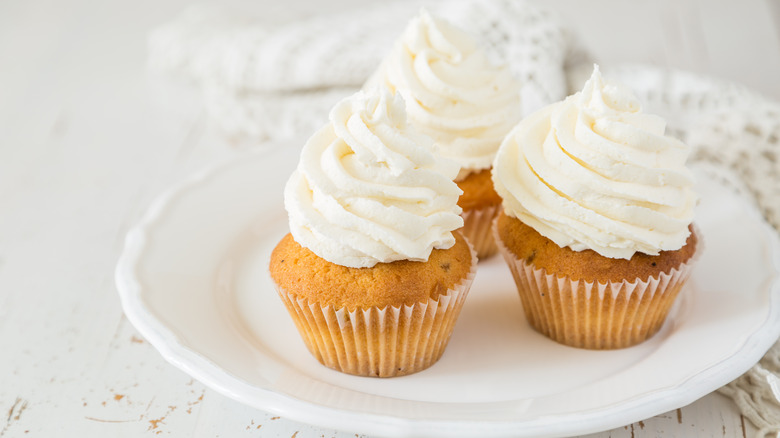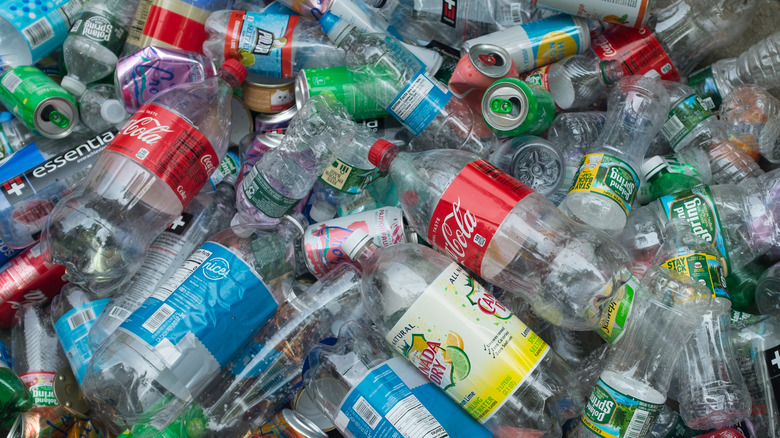Vanilla Flavoring Might Soon Be Made Of Plastic Bottles. Here's How
There might soon be another reason to love vanilla. While the mild, pleasing flavor makes everything from ice cream and cake to pudding and even coffee taste sweet and delicious, scientists may have found a way to make it great for the environment as well as for our taste buds. According to Food and Wine, researchers at the University of Edinburgh in Scotland may have just found a way to turn plastic waste into vanillin using genetically modified E. coli bacteria. They recently published their findings in the journal "Green Chemistry," explaining how the microbes can break down and transform the plastic into a compound that may be safe for human consumption.
"This is the first example of using a biological system to upcycle plastic waste into a valuable industrial chemical and this has very exciting implications for the circular economy. The results from our research have major implications for the field of plastic sustainability and demonstrate the power of synthetic biology to address real-world challenges," Joanna Sadler, one of the paper's authors, said, via Food and Wine.
How scientists converted plastic bottles into vanillin
According to the Guardian, the researchers first used mutant super-enzymes that had already been modified to break down the polyethylene terephthalate, more commonly known as plastic, into its organic compound, terephthalic acid. They then heated a broth of the genetically engineered E. coli bacteria up to 98.6 F, which converted 79% of the terephthalic acid into vanillin in one day. Vanillin is a compound that gives most synthetic vanilla its taste and smell. It is also used in many foods, pharmaceuticals, cosmetics, herbicides, and cleaning products. This unique recycling method could help tackle the global problem of plastic pollution by converting plastic waste into useful compounds.
Next, the researchers plan to scale up the project to be able to convert even higher quantities of plastic to vanillin, as well as work on converting terephthalic acid into other valuable molecules using microbes. Stephen Wallace, another of the paper's authors, told the Guardian: "Our work challenges the perception of plastic being a problematic waste and instead demonstrates its use as a new carbon resource from which high value products can be obtained."

